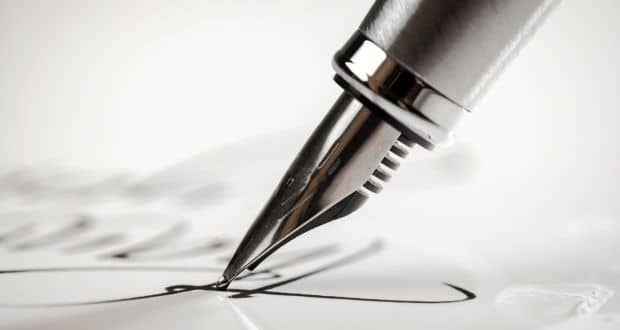THE FAINTEST INK
May 9, 2022 2023-09-18 21:23THE FAINTEST INK
I’ve always wondered how records were kept and how effective communications were made before the invention of the printing press. I once asked my mother-in-law about her birth certificate, and her response was shocking at the time, despite the fact that she is now nearly a century old but still strong and mentally sharp. She told me she can only calculate her age by recalling a significant event that occurred around the time she was born. People in the past were able to keep their history and culture alive by passing down stories from generation to generation while taking notes on events that occurred during the time period. They must have sharp memories, and they make certain that they do not die with their memories, ensuring that they are always passed on to the next generation, what a marvel!
Now, fast forward to this era, and everything you knew and intend to know has been and will continue to be written. Do you want to learn more about World War I and World War II? You can learn more about it by reading about it! Do you have an idea? Simply try and write it down. Do you want to send an important message to someone who lives a long distance away? You can simply use your phone to write a letter or send a text message. You no longer need to be concerned about how to communicate effectively.
“Writing is a medium of human communication that involves the representation of a language through a system of physically inscribed, mechanically transferred, or digitally represented symbols. Writing systems are not themselves human languages (with the debatable exception of computer languages); they are means of rendering a language into a form that can be reconstructed by other humans separated by time and/or space.”–Wikipedia
The history of writing spans several decades, and there have been many changes and adjustments made along the way to get us to where we are now, and there are still many improvements to be made.
Writing has evolved into a critical aspect of human life, as it is required in all fields, including farmers, lawyers, architects, and managers. Writing cannot be excluded from any field or work of life, and it can take many forms, including emails, text messaging, social media, and so on.
Writing is the most important form of communication in comparison to other forms of communication because it is the only one that cannot be easily misinterpreted.
I once saw a program in which the participants were lined up in a queue, and the first person in the queue was told a phrase and asked to tell the next person, and so on until the last person in the queue. Finally, the first and last people were asked to say what they were told, and surprisingly, there was a huge disparity between what they both heard. Sign language was also used, with disastrous results. This scenario demonstrates how information passed from person to person using sign language and mouth-to-mouth communication can change over time; it also implies that we may have had significant deviations in our original culture and history as a result of the form of communication used in the past. We may not have anything left of our history and culture by now, thanks to the era of writing.
Back in high school, I preferred subjects that required more calculations to those that required a lot of reading; I would rather read a novel or other story books than academic books. As a result, I set out to solve the problem I had identified as a student. How did I accomplish this? I examined my areas of strength, writing, and weakness, reading. I enjoyed writing and discovered that I could recall what I wrote on my own, so I developed the habit of taking notes during lectures and then compiling the notes into a complete write up once the lecture was over. I even went so far as to assist my classmates in copying their notes, forcing myself to write and read, especially on subjects I find difficult to read. If I read courses with lengthy write-ups, I might fall asleep from boredom, so I write while reading. I simply read my write-ups for some subjects.
Other advantages of writing are as follows:
Writing improves your creative, logical, and analytical skills because it requires you to use both sides of your brain. The right side of the brain is the creative side that handles what you intend to write, whereas the left side of the brain is the logical and analytical side that tells you how to organize your thoughts in a logical manner.
Everyone has a past, which means everyone has a story to tell, and lessons can be learned from each story; however, if these stories are not written down, no one will ever know them. As a result, writing is an extremely important tool for expression and development.
If you’ve ever been to an anger management section, you’ll know that one of the pieces of advice given to the person in question is to always write down how they feel at any given time. Writing down your thoughts and feelings has been shown to improve your mental health by reducing anxiety, depression, and other mental health issues. The negative energy created during the occurrence is directed to writing rather than a person or an object, bringing relief.
Planning is aided by writing. Do you have any goals in mind and plans for how you intend to achieve them? Then, write down your objectives and plans. You are more likely to achieve a good percentage of a written goal than an unwritten goal because you can review your write-up in case of distraction and get back on track.
Even if you have a photographic memory, your memory may fail you. We have several authors who are no longer alive, but because they were able to put their thoughts and ideas into writing, these ideas continue to be used to make life better and the world a better place even after their deaths.
The old Chinese saying is correct indeed, the faintest ink is more powerful than the strongest memory.
Sources
https://www.inspiredforward.com/30-reasons-why-writing-is-important/
 |
Author : Amiakhor Beatrice Ejaeta |























